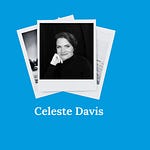Have you ever tried to extend compassion across the gender divide and felt your whole body tense up? Like you’re being asked to repeat the same exhausting pattern—absorbing someone else’s experience, silencing your own needs, letting behavior slide because you’re supposed to be understanding? Or maybe you’ve watched someone bristle when offered compassion, deflecting it like it’s weakness they can’t afford to show?
“Culturally, women are expected to extend compassion, and men are rarely socialized to receive it,” explained Dr. Paige Williams—author of “Own It” and leadership expert—when we spoke recently on the podcast. “What we all need is a more nuanced, more skilled, more boundaried understanding of how compassion and accountability work together so we can leverage this act of love for ourselves, for others, for what’s possible between us.”
How might this work?
What We Get Wrong About Accountability
“Accountability isn’t about blame. It’s not about compliance,” Paige explained. “It’s actually about clarity, integrity, and honoring what matters in our relationships with each other.”
This is how compassion and accountability work together. Compassion without clarity becomes exhausting performance—absorbing everyone’s feelings with no boundaries. Accountability without compassion becomes shame and blame. But when you bring them together? You can hold clear boundaries AND stay connected. You can name what’s not working AND recognize you’re both doing your best with what you have.
Accountability Begins With Three Questions
Accountability begins with these three questions:
What’s yours to own? Start by recognizing you’re working with imperfect data. Your brain has taken shortcuts, made assumptions, filled in gaps based on your own experience—which doesn’t include what it’s like to navigate the world in a different gender. This question creates space to be curious rather than making someone the villain. Ask yourself: What might I be missing here? What am I assuming about why they’re showing up this way? What haven’t I experienced that might be shaping their response?
Have you made your expectations clear? This is where many of us abandon ourselves—especially those of us shaped by “good girl” conditioning. We hint. We hope people will notice. We expect them to read our minds because stating what we need feels risky or demanding. But unless you know what your boundaries are and you’ve actually stated them out loud, you can’t expect others to honor them. Ask yourself: What do I actually need here? Have I said it out loud, or am I just hoping they’ll figure it out? What are my boundaries in this situation?
If your boundaries are crossed, have you voiced it? People can’t read your mind. Voicing when boundaries are crossed isn’t about blame. It’s about staying in honest relationship with yourself and the other person. It’s how we practice accountability as an act of love. Ask yourself: What’s not okay right now? Have I named it? What would it sound like to say this cleanly and clearly?
The goal isn’t performance policing—constantly surveilling what someone’s doing wrong so you can punish them. The goal is partnering. Instead of facing off across the table—pointing fingers, defending positions, making each other wrong—you end up sitting side by side, looking together at what’s not working, and finding a way forward together. Some of what needs to shift will be yours to own. Some will be theirs. But the work is shared.
What Happens When They Won’t
But what if they still can’t or won’t take accountability for what’s theirs to own?
“There is always a choice,” Paige said. “It might not be one you want to look at. It might not feel practical in this moment. But just acknowledging you have a choice can shift the energy.”
Your choice isn’t about doing more work to make them change. It’s about deciding what level of relationship is sustainable when someone doesn’t want to or is unable to honor your clearly stated boundaries. You get to decide if this relationship still works for you. You get to decide how much of yourself you bring. You get to decide if it’s time to step back - at least for a while.
This is why accountability is an act of love—for yourself first. It means not abandoning your boundaries when someone else won’t respect them. And sometimes it means compassionately recognizing and accepting when someone isn’t capable of being the partner you need them to be.
Listen & Learn More
You can hear my full conversation with Paige in the podcast above, where she shares more about accountability, compassion, and leadership. For more of Paige’s wonderful work, grab a copy of her book “Own It.”
Please note: We are mindful that ‘girl’, ‘woman’, ‘boy’ and ‘man’ are socially constructed ideas of gender that can fall painfully short of defining the fabulous complexity of who we each are. If these words resonate with part of how you have previously or currently identified yourself, we’d love to hear about your lived experiences.
Want more?
💗 DOWNLOAD THE FREE SELF-COMPASSION TOOLKIT
Self-compassion research shows us that when we meet our struggles with understanding rather than criticism, we activate our brain’s natural caregiving system - allowing us to maintain high standards while releasing the crushing weight of perfectionism. Using the FREE framework—Feel it, Release it, Experiment with it, Evolve it—this toolkit will help you build self-compassion that is sustainable. Get your toolkit.
📚 DISCOVER THE PERFECTLY IMPERFECT BOOKS
If you’ve ever felt pressured to be good, The Perfectly Imperfect Women’s Journal and The Perfectly Imperfect Companion Workbook will help you break free. With real stories, research-backed insights, and powerful exercises, these books will give you the confidence to trust yourself, set boundaries, and step into your own power. It’s time to rewrite the rules and start living on your terms. Get your copies now.
💃 BECOMING UNIQUELY YOU
Break free from perfectionism, people-pleasing, and self-doubt with the Uniquely You Workshop & Tools Bundle. Through three powerful workshops, you’ll gain the confidence to trust yourself, set boundaries, and lead with authenticity. With lifetime access, you can move at your own pace and start making real change today. Start your journey now.











